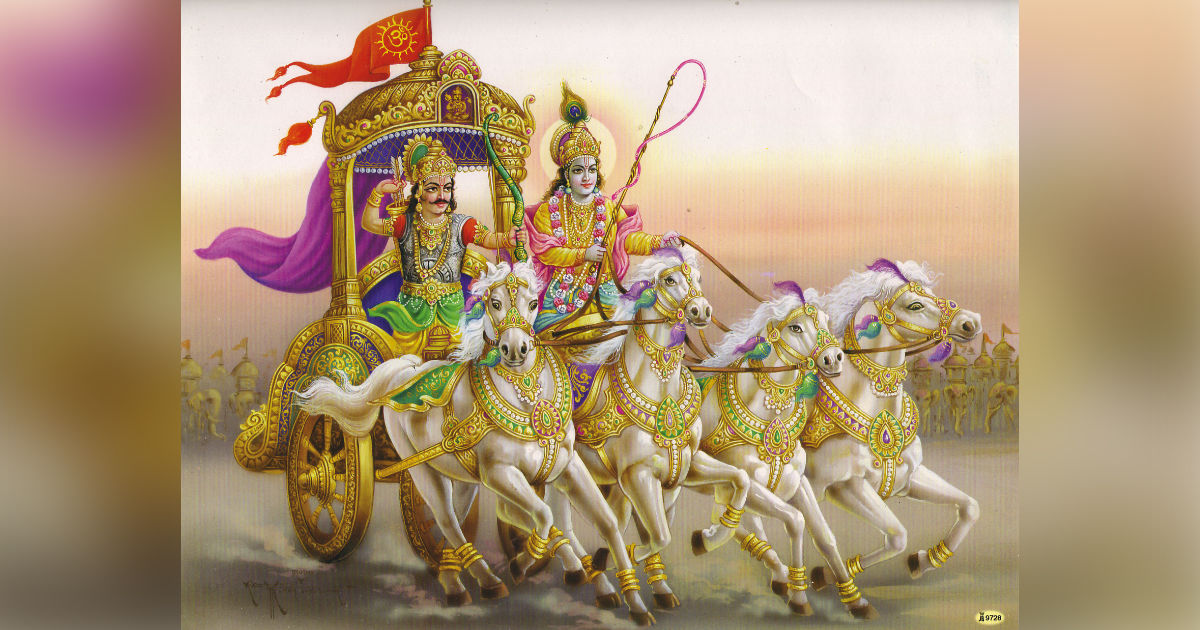The Gita explains that when we laugh, we must laugh with others and not at others. Best to uplift others, while laughing with them. We are all souls who can find lasting love and joy at the spiritual level of reality. Seeing everyone as sentient beings, they understand that everyone shares the same essential joys and sorrows. Continue reading
Tag Archives: Gita
754 – How do you view love and friendship?
Love and Friendship
Love is like the wild rose briar,
Friendship like the holly–tree
The holly tree is dark, when the rose–briar blooms
But which will bloom most constantly?
The wild–rose briar is sweet in spring,
Its summer blossoms scent the air;
Yet wait till the winter comes again
And who will call the wild–briar fair?
Then scorn the silly rose–wreath now
And deck thee with holly’s sheen,
That when December
Blights thy brow
He may still leave the garland green.
By Emily Bronte. Continue reading
606 – Hope and Worry
Hope is the thing with feathers
By Emily Dickenson (1861)
Hope is the thing with feathers–
That perches in the soul–
And sings the tune without the words–
And never stops-at-all–
And sweetest –in the Gale—is heard–
And sore must be the storm–
That could abash the little Bird.
That kept so many warm–
I’ve heard it in the chilliest land–
And on the strangest Sea–
Yet—never—in Extremity,
It asked a crumb—of me.
550 – 11 advices how to live our lives
According to the Bhagavad Gita.
- Whatever you do in a daily life, do not bother about the results. Krishna says that we should focus on our karma (actions).
- Be objective in every action.
- Embrace love, compassion and faith in life.
- Have faith in yourself and take simple steps daily.
- Accept change, it is a part of life.
- Meditate for five minutes at least daily.
- Try to understand your food habits and change them if needed.
- Practice self-observation.
- Identify your fears, let them go and just focus on karma.
- Focus on the fact that we are equal.
- Connect with nature, people and the whole universe.
409 – Two Brothers
Karma and Yoga are brothers. When they unite, they form a very powerful relationship. Through this relationship it is possible to lead a spiritual life for an ordinary individual. None of us can avoid the actions of our karma. It is not the objective of Yoga to send us on a road, where one neglects one’s karma in the form of our daily responsibilities and duties. Continue reading
382 – Are we Asuras?
Can we change ourselves?
Who are they? Asuras are the demons and the fight between good and evil is when the gods are at war with them. Daityas and danavas are also demons. They represent the chaos and adharma (betrayal, discord, wrongness, and vice, immorality) that threatens our cosmic stability. Continue reading
368 – Forgiveness
What do we know about forgiveness? It is a word used freely and frankly. We say sorry at the drop of a hat. Do we really feel sorry or is it just a word? How does one feel, when one says it. For most of us it is like saying have a nice day. If one says sorry with real emotion, then one will feel a change within oneself. Sorry is used in sarcasm, and it is expressed as a sneer. Continue reading
340 – Divine message
Gita, Chapter 7.
I am the universe, the universe is in me.
The external me is in earth and air and space,
in fire and in water and in mind, reason and self.
The invisible me is everywhere in everything.
I am the light of the sun and the coolness of the moon;
I am the beauty in the rainbow and the fragrance of the jasmine. Continue reading
258 – Let us dry the tears of Mother Earth
We have to make Mother Earth happy. We have made her unhappy and it is leading to our annihilation. If only all of us collectively stepped back and self-examined our thoughts and emotions, we will be surprised at the despair accumulated in us. It is this desolation and sadness which is leading to war, terrorism and brutalism. Continue reading
155 – How we should prepare our mind
We must learn and understand the practice of Karma Yoga and Bhakti Yoga. What is Karma Yoga? The word karma is used freely and frankly and all our misfortunes are blamed on our bad Karma. Karma is the real desires created in the mind. When we wish to possess, it is karma. Karma is a movement that takes place within the mind, body or emotions. Continue reading
James Swartz – Karma Yoga, Teachers and Scriptures – Talk 6
Karma yoga is bhakti yoga. Swami Vivekananda, Freud, 
consequences of technology. Psychological designation in
Vedanta appeared. Multipath confusion. Better to integrate all
parts of the psyche. All stages of devotion are necessary, must
be practised. For karma yoga you need a guru and the
scripture. Only a mature person can surrender to Isvara.
Mantra “sadāśiva samārambhāṁ
śaṅkarācāryamadhyamām…” The self is the guru. Self is
beyond perception and inference. You need a guru because
the tendency for self-deception is immense. Dead gurus don’t
reveal your self-deceptions. You should manage your own life
based on the knowledge. Desire produces anger, depression
and delusion. Karma yoga as right action: dharmic lifestyle is
necessary. 5 daily practices: worship teacher, worship of
ancestors (tvam eva mātā…), worship deity, service to
humanity, protect environment. Desire hides your self from
you. Karma yoga turns an extroverted and subjective mind
into an introverted and objective mind. Inner child becomes an
inner adult. Relationship of guru and disciple: Krsna and
Arjuna in the Bhagavad Gita. Sakhya bhava. Karma yoga is an
appropriate use of your free will. Described in chapters 1-6 of
the Bhagavad Gita.
More: Vedanta Seminars.
More on: Vedanta.
Learn more about: Yoga Vidya.
You can sign up for: our online seminars.
You can also support us by: donating.
Podcast: Play in new window | Download
Subscribe: RSS











